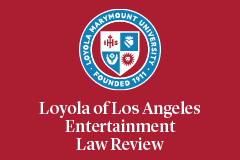Abstract
Even after the International Olympic Committee’s quick and harsh response to the “black power salute” in the 1968 Olympic Games— positing that the apolitical Olympic Games were not a suitable venue for domestic political statements—athletes continued using their platform to protest human rights violations. Should such conduct be allowed? Are athletes entitled to display their political opinions on the field? Or should athletic organizations be allowed to regulate their athletes’ protests and political speech in the arena? On the one hand, freedom of speech is a fundamental human right. On the other, sports have a long history of remaining apolitical—limiting political expression during games through formal contracts, regulations, and longstanding traditions. While international athletic organizations may have reason to remain politically neutral, this paper recommends that political speech relating to internationally agreed upon, core human rights values should be the exception.
Recommended Citation
Faraz Shahlaei,
When Sports Stand Against Human Rights: Regulating Restrictions on Athlete Speech in the Global Sports Arena,
38 Loy. L.A. Ent. L. Rev. 99
(2017).
Available at: https://digitalcommons.lmu.edu/elr/vol38/iss1/3


